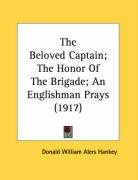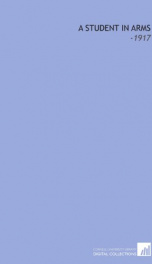a student in arms 2d series

Purchase of this book includes free trial access to www.million-books.com where you can read more than a million books for free. This is an OCR edition with typos. Excerpt from book: VII THE FEAR OF DEATH IN WAR I Am not a psychologist, and I have not seen many people die in their beds; but I think it is established that very few people are afraid of a natural death when it comes to the test. Often they are so weak that they are incapable of emotion. Sometimes they are in such physical pain that death seems a welcome deliverer. But a violent death such as death in battle is obviously a different matter. It comes to a man when he is in the full possession of his health and vigour, and when every physical instinct is urging him to self-preservation. If a man feared death in such circumstances one could not be surprised, and yet in the present warhundreds of thousands of men have gone to meet practically certain destruction without giving a sign of terror. The fact is that at the moment of a charge men are in an absolutely abnormal condition. I do not know how to describe their condition in scientific terms; but there is a sensation of tense excitement combined with a sort of uncanny calm. Their emotions seem to be numbed. Noises, sights, and sensations which would ordinarily produce intense pity, horror, or dread, have no effect on them at all, and yet never was their mind clearer, their sight, hearing, etc, more acute. They notice all sorts of little details which would ordinarily pass them by, but which now thrust themselves on their attention with absurd definitenessabsurd because so utterly incongruous and meaningless. Or they suddenly remember with extraordinary clearness some trivial incident of their past life, hitherto unremembered, and not a bit worthremembering! But with the issue before them, with victory or death or the prospect of eternity, their minds blankly refuse to come to grips. No; it is not at the moment of a charge that men ...
Info about the book
Author:
Series:
Unknown
ASIN:
B000F9T214
Rating:
3.5/5 (2)Your rating:
0/5
Languge:
English
Users who have this book
Users who want this book
What readers are saying
What do you think? Write your own comment on this book!
write a commentGenre
if you like a student in arms 2d series try:
Other books by this author
Do you want to read a book that interests you? It’s EASY!
Create an account and send a request for reading to other users on the Webpage of the book!




